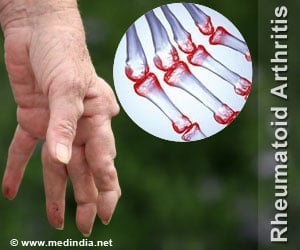Educating pregnant women regarding the choices available for prenatal genetic testing can reduce the number of tests conducted.

The study also suggests that some women may have undergone prenatal screening for Down syndrome without having full information about the implications of testing, the authors said.
The article is published in the September 24, 2014 issue of JAMA, the Journal of the American Medical Association.
"Our findings show that prenatal testing is not appropriate for everyone, and that all women need information that is readily understood and unbiased to enable them to make informed choices reflecting their own preferences and values," said lead author Miriam Kuppermann, PhD, MPH, professor and vice chair for clinical research at the UCSF Department of Obstetrics, Gynecology and Reproductive Sciences.
"Decisions about prenatal testing are personal and should be reflective of the patient's own values and preferences, not those of her health-care providers," said Kuppermann.
Since the introduction of amniocentesis in the 1970s, prenatal genetic testing guidelines have largely centered on identifying women at higher risk of giving birth to an infant with Down syndrome or other chromosomal abnormalities, to whom diagnostic testing should be offered. Professional societies, including the American College of Obstetricians and Gynecologists, recommend that patients of all ages be given detailed information on both screening and diagnostic tests -- and the conditions to be tested for -- in order to help patients make informed decisions.
Advertisement
The goal of the UCSF randomized clinical trial was to determine the types of choices women of varying backgrounds would make "after being fully informed about the benefits and risks of differing prenatal testing strategies and having the opportunity to clarify their values around these options."
Advertisement
It involved 710 English or Spanish-speaking women who were a maximum of 20 weeks pregnant with twins or a single baby and had not previously undergone prenatal testing in the current pregnancy. Participants were enrolled in the study between January 2010 and June 2012 and were followed through their deliveries; the last delivery occurred in January 2013.
Half the women were randomly assigned to the intervention group, which included access to an interactive decision-support guide and to prenatal testing with no out-of-pocket expenses. The other half were provided with the usual prenatal care. No matter their age, all the women – consistent with current guidelines – were informed that prenatal diagnostic testing was an option.
The researchers found that on average, women who were assigned to the intervention group were less likely to undergo diagnostic testing – 5.9 percent versus 12.3 percent. Additionally, the women in this group scored significantly higher for knowledge of genetic testing, and were more likely to correctly report both the miscarriage risk of amniocentesis and their likelihood of carrying a fetus with the chromosomal abnormality that causes Down syndrome.
"This does not mean that women in general don't want testing," said Kuppermann. "But it does suggest that at least some women have undergone testing without having clarity about the implications. As prenatal testing becomes easier with cell-free DNA testing, a highly accurate blood test for Down syndrome, it is particularly important that women understand the implications of having this test so they can decide whether or not to opt for it."
Source-Eurekalert














